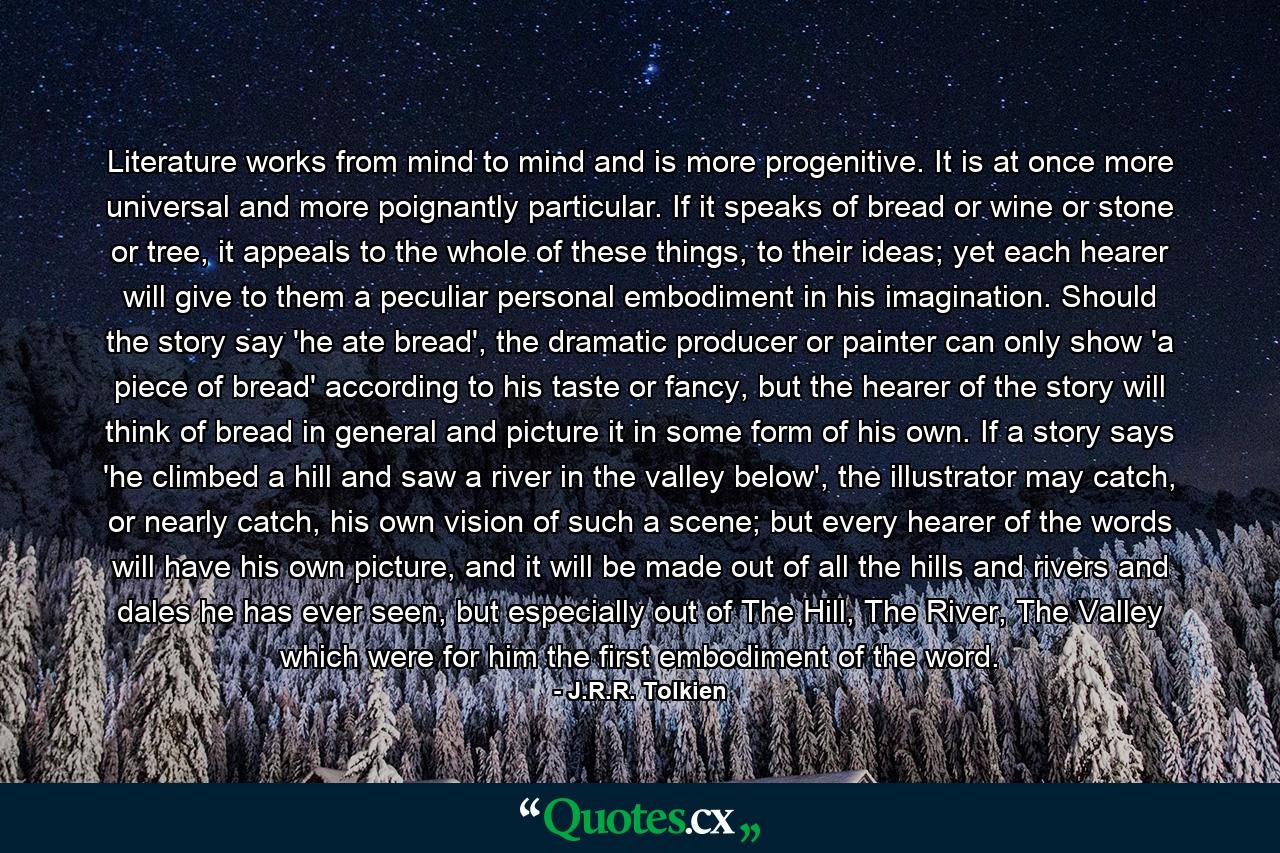Literature works from mind to mind and is more progenitive. It is at once more universal and more poignantly particular. If it speaks of bread or wine or stone or tree, it appeals to the whole of these things, to their ideas; yet each hearer will give to them a peculiar personal embodiment in his imagination. Should the story say ‘he ate bread’, the dramatic producer or painter can only show ‘a piece of bread’ according to his taste or fancy, but the hearer of the story will think of bread in general and picture it in some form of his own. If a story says ‘he climbed a hill and saw a river in the valley below’, the illustrator may catch, or nearly catch, his own vision of such a scene; but every hearer of the words will have his own picture, and it will be made out of all the hills and rivers and dales he has ever seen, but especially out of The Hill, The River, The Valley which were for him the first embodiment of the word.
